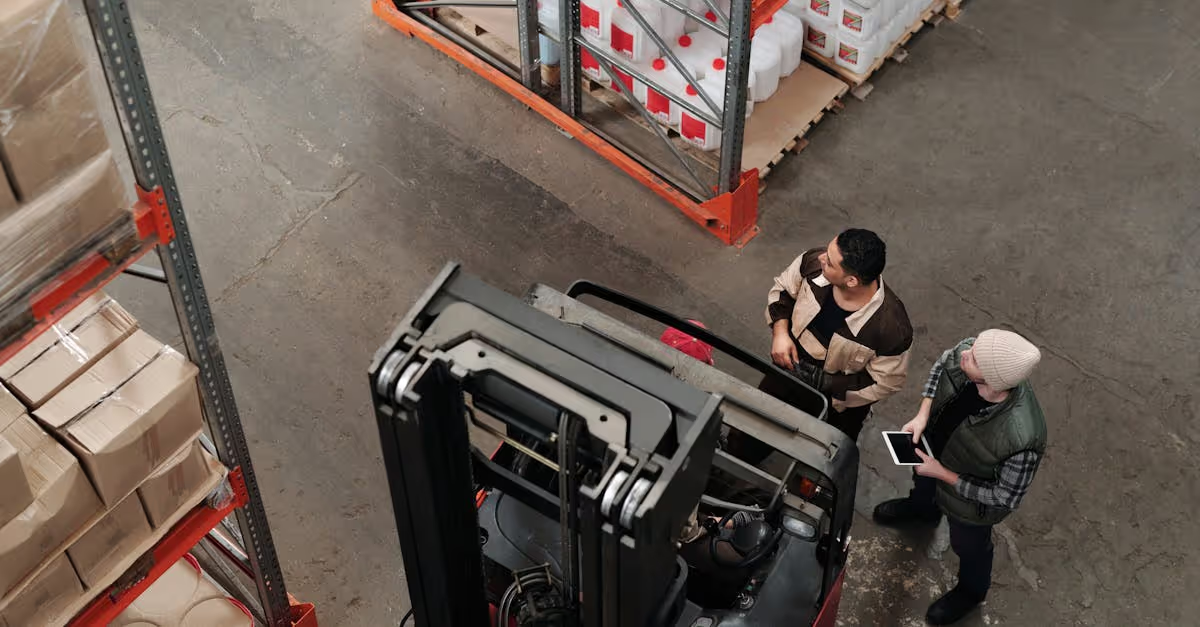Key Takeaways
- Importance of Chemical Balance: Maintaining the correct chemical balance is essential for pool safety and clarity, preventing skin irritation and equipment damage.
- Types of Pool Chemicals: Key chemicals like chlorine, pH adjusters, and stabilizers each serve specific functions vital for water health and swimmer safety.
- Tools for Testing Chemical Levels: Utilizing test kits, digital test strips, and pool water analyzers simplifies the monitoring of chemical levels, ensuring accurate readings and maintenance.
- Convenience of Calculators and Apps: Online dosage calculators and mobile apps enhance pool maintenance efficiency by providing precise chemical dosages based on individual pool parameters.
- Influence of External Factors: Factors such as pool size, water temperature, and environmental conditions significantly affect the necessary chemical dosages for optimal pool care.
- Regular Monitoring: Establishing a routine for checking and adjusting chemical levels is crucial, especially during peak usage seasons, to maintain a healthy swimming environment.
Maintaining a sparkling pool isn’t just about aesthetics; it’s crucial for health and safety. Did you know that improper chemical balance can lead to skin irritation and even equipment damage? That’s where the right tools and calculators come into play. With a myriad of options available, we can simplify the process of determining the correct chemical dosages.
From smartphone apps to online calculators, these resources empower us to keep our pools in top condition. They take the guesswork out of balancing pH, chlorine, and alkalinity levels, ensuring our swimming experience is both enjoyable and safe. Let’s dive into the essential tools that can help us achieve the perfect chemical balance for our pools.
Overview of Chemical Dosage Requirements
Chemical dosages play a critical role in maintaining a safe and enjoyable pool environment. Proper levels protect swimmers and pool equipment. Misbalanced chemicals can lead to irritations or damage. Understanding these requirements streamlines pool care.
Importance of Correct Chemical Dosages
Correct chemical dosages maintain water clarity and safety. Balanced pH and chlorine levels prevent skin irritation and algae growth. Without proper dosing, a pool can quickly turn into a breeding ground for bacteria. Regular testing and adjustment of chemical levels help keep the pool inviting. So, how often do we check our pool chemistry? Daily checks during heavy usage seasons can be beneficial. Utilizing tools that monitor chemical balances simplifies this process. Many homeowners find peace of mind in automated systems, allowing them to enjoy their pool without worry.
Common Pool Chemicals and Their Functions
Common pool chemicals serve specific functions necessary for pool maintenance. Here’s a brief overview:
- Chlorine: Disinfects water, killing harmful bacteria and pathogens.
- pH Increaser/Decreaser: Balances acidity or alkalinity, maintaining the ideal pH range of 7.4 to 7.6.
- Alkalinity Increaser: Stabilizes pH levels, preventing fluctuations due to environmental factors.
- Shock: Super-chlorinates the pool to eliminate contaminants and refresh water.
- Stabilizer: Protects chlorine from being destroyed by sunlight.
Using calculators and apps makes dosing straightforward. For instance, a small change in pH can impact overall water quality. Have you ever spilled a drink in the pool? A little splash changes everything. Similarly, even minor adjustments in chemicals can lead to significant improvements. Knowing these basics helps us maintain our pools and creates a welcoming space for family and friends.
Tools for Determining Chemical Dosages
Various tools assist us in determining precise chemical dosages for pools. These resources simplify the balancing process and promote a safer swimming environment.
Test Kits
Test kits serve as our first line of defense for monitoring pool chemistry. These kits typically include reagents that measure critical levels like pH and chlorine. Using a test kit involves collecting water samples and adding specific chemicals. The resulting color changes reveal the concentration of each element. We recommend checking chemical levels weekly, or daily during peak usage. Many homeowners enjoy this hands-on approach, turning water testing into a fun family activity. Who doesn’t love a good color-matching game with water?
Digital Test Strips
Digital test strips elevate precision. These strips are more advanced, as they feature sensors that read and analyze water samples. We simply dip the strip into the pool water and wait for it to register results on a connected device. This tech-savvy method presents an easy-to-read display, making chemical balance a breeze. Some digital test strips even integrate with smartphone apps, pushing results and insights directly to us. With options like reminders to test, we can keep our pools at their best without the guesswork.
Pool Water Test Analyzers
Pool water test analyzers offer professional-grade insights. These devices measure various water parameters within moments. They utilize advanced sensors to analyze samples, providing us with detailed reports on our pool's health. We can evaluate chlorine levels, alkalinity, and calcium hardness all in one go. Some analyzers connect to cloud applications, allowing us to track our pool’s chemical history. Such features can help us identify trends and adjust our maintenance strategies effectively.
Using these tools, we can achieve a harmonious balance in our pools, ensuring our swimming experience remains enjoyable for everyone. Which tool do you think fits your needs best?
Calculators for Chemical Dosages
Calculators for chemical dosages play a vital role in pool maintenance. They take the guesswork out of balancing pool water, making this task simple and efficient.
Online Dosage Calculators
Online dosage calculators offer a quick way to find the right chemical amounts needed for your pool. Users input specific water parameters like pH and chlorine levels. The calculator then provides the exact dosages required. These tools often come from reliable sources, ensuring accuracy. Some calculators even factor in water temperature and pool size, making calculations more precise. By analyzing your data, these calculators take the hassle out of manual calculations, leaving you free to enjoy a refreshing swim without worrying about water chemistry. For many, using an online calculator turns chemical balancing from a chore into a straightforward process.
Mobile Apps for Pool Maintenance
Mobile apps for pool maintenance make managing pool chemistry accessible anytime, anywhere. These apps allow users to track water quality and receive alerts for chemical dosages. Features include automated reminder systems and easy-to-follow guides. Some apps even incorporate barcode scanning for chemicals, simplifying the input of dosages. Pool owners love the convenience and community they offer, often sharing tips and advice through forums. Are you ready to join this tech-savvy community? By leveraging these mobile tools, we transform pool care from a complex task into a streamlined experience. Let's embrace technology and keep our pools safe and inviting.
Factors Affecting Chemical Dosages
Chemical dosages for pools depend on several key factors. Understanding these elements helps us maintain crystal-clear water while keeping our pool safe for everyone.
Pool Size and Volume
Pool size and volume play a vital role in determining the right chemical amounts. Larger pools require more chemicals to achieve the same levels as smaller ones. For example, a 20,000-gallon pool needs different dosages compared to a 10,000-gallon one. To calculate the volume accurately, we can use formulas depending on the pool shape—rectangular, circular, or oval. Remember, getting this right is foundational; we wouldn't want to mix the ingredients for a cake without knowing the serving size!
Water Temperature and pH Levels
Water temperature and pH levels directly impact chemical effectiveness. Warmer water increases the activity of chlorine, meaning we need to adjust dosages accordingly. Similarly, pH levels affect how well our chemicals work. Ideal pH levels range from 7.2 to 7.8. When pH drops below this range, chlorine becomes less effective, leading us to use more than necessary. Monitoring temperature and pH regularly helps us stay on top of the best dosages. Think of it as tuning a musical instrument, where every change gets us closer to the perfect harmony in our pool.
Environmental Considerations
Environmental factors, like weather and usage patterns, also influence chemical balance. Heavy rain can dilute our pool's chemicals, while a hot sun encourages evaporation. Frequent pool parties increase swimmer load, leading to more contaminants. These factors mean we might need to adjust our chemical practices. It’s like preparing for a family barbecue; we wouldn’t use the same amount of burgers if we’re expecting ten guests versus twenty! By being aware of these changes, we can keep our pool sparkling and enjoyable for everyone involved.
Conclusion
Maintaining the right chemical balance in our pools is crucial for safety and enjoyment. By utilizing the variety of tools and calculators available, we can simplify the process of determining chemical dosages. From smartphone apps to digital test strips, these resources empower us to make informed decisions about our pool care.
Regular testing and adjustments based on accurate measurements help us keep our pools inviting and safe. Embracing technology not only makes pool maintenance more manageable but also enhances our overall swimming experience. With the right tools at our disposal, we can confidently ensure our pools remain a refreshing oasis for family and friends.
Frequently Asked Questions
Why is maintaining chemical balance in a pool important?
Maintaining chemical balance is crucial for swimmer safety and equipment longevity. Improper chemical levels can lead to skin irritations and damage to pool surfaces. Regularly testing and adjusting pH, chlorine, and alkalinity levels ensures a healthy, enjoyable swimming environment.
What tools can I use to test pool chemicals?
You can use various tools like test kits, digital test strips, and pool water test analyzers to monitor chemical levels. Test kits offer a hands-on approach, while digital strips and analyzers provide quick and professional-grade results, making it easier to maintain proper chemical balance.
How can calculators assist in pool maintenance?
Pool calculators simplify the chemical dosing process by allowing users to input specific water parameters and receive accurate recommendations. These tools account for variables like pool size and water temperature, eliminating guesswork and helping maintain a safe swimming environment.
How often should I test my pool water?
It's recommended to test pool water at least once a week. During peak swimming seasons or heavy usage, daily testing is advisable to ensure chemical levels remain balanced, providing a safe and enjoyable swimming experience.
What are the common pool chemicals I should know about?
Common pool chemicals include chlorine for disinfection, pH adjusters to maintain ideal acidity levels, and stabilizers to protect chlorine from being degraded by sunlight. Knowing these chemicals and their functions helps you maintain water clarity and safety.
How do environmental factors affect pool chemical levels?
Environmental factors, such as temperature, weather conditions, and pool usage, can significantly impact chemical levels. For instance, warmer water increases chlorine activity, and heavy rains can dilute chemical concentrations, necessitating regular adjustments to maintain balance.






